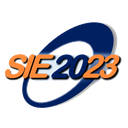Executive Secretary

XX Simposio Internacional de Ingeniería Eléctrica
SIE 2023
Resumen
El Aprendizaje Basado en Problemas (PBL) es un método pedagógico y una filosofía adoptada en la Universidad de Linköping desde los años 80. El PBL ha evolucionado con el tiempo, desde instruir y facilitar la construcción del conocimiento hasta propiciar un trabajo en equipo exitoso. Mientras tanto, los pequeños grupos de tutoría están pasando a convertirse en “equipos” donde el grupo proporciona el espacio tanto para crear conocimientos específicos de la materia como para aprender a colaborar.
El PBL a menudo se reduce a lo que sucede en los grupos de tutoría, pero debe verse como una forma de pensar que influye en todas las actividades académicas. Las nociones de PBL se aplican en las clases, seminarios, laboratorios o al liderar investigaciones. El método PBL influye en la forma en que interactuamos y trabajamos con estudiantes y colegas.
Sin embargo, cuando comenzamos a recopilar las nociones de PBL, nos enfrentamos al desafío de pasar de un aula al entorno virtual. La transición ha sido rápida y todavía estamos tratando de comprender qué se necesita para llevar a cabo la enseñanza, la tutoría y la investigación con la misma calidad en estas nuevas condiciones. ¿Qué debemos evitar? ¿Qué deberíamos cambiar? ¿Qué va a quedar tras la pandemia y qué no?
Otro aspecto es si debemos afrontar todos estos desafíos individualmente o en colaboración con otros colegas ¿Vamos a trabajar con la misma eficacia que cuando nos reunimos en una sala de conferencias? ¿Por qué, en primer lugar, necesitamos trabajar en grupos?
En la versión final de este trabajo, me gustaría reflexionar sobre qué tipo de literacidad se necesita para lograr una colaboración exitosa entre profesores y estudiantes ¿Cuáles son las habilidades o comportamientos que se deben fomentar en un grupo para que esto suceda?
Este conocimiento puede resultar útil para nosotros, los académicos, sin importar si estamos entrenando a pequeños grupos de tutorías, estudiantes de posgrado o un equipo de investigación.
También proporcionaré algunos ejemplos de mi propia práctica. Además, me gustaría reflexionar sobre algunos desafíos que se presentan a los facilitadores/profesores en línea que aún necesitan motivar a los estudiantes a veces en condiciones que ellos no eligen. Para ello también planeo proponer algunas actividades y herramientas que podríamos utilizar para motivar a los estudiantes.
Por último, existe una gran variedad de herramientas colaborativas disponibles que pueden simplificar la interacción online con la misma eficacia que en condiciones presenciales, pero estas herramientas deben organizarse y comprenderse para que se ajusten a un diseño pedagógico destinado a alcanzar los resultados de aprendizaje previstos. Aquí es cuando la pedagogía se encuentra con la tecnología.
Abstract
Problem Based Learning (PBL) is a pedagogical method and a philosophy embraced at Linköping University since the 80’s. PBL has evolved over time with an impact on the different traits of the PBL teachers from instructing and facilitating knowledge construction to scaffolding successful team work. Meanwhile, the small tutorial groups are transitioning to become “teams” where the group provides the space for both creating subject-specific knowledge and learning collaborative skills.
PBL is often reduced to what happens in the tutorial groups more than seen as a way of thinking which influences all academic activities. We apply our PBL notions when lecturing, leading seminars, assisting laborations or leading research. The PBL method influences the way we interact and work with students and colleagues.
However, when we start gathering the notions of PBL we are challenged to move from the “safe” face-to-face (f2f) classroom environment to the online milieu. The transition has been fast, and we are still trying to understand what is needed to conduct teaching, mentoring and research with the same quality in these new conditions. What should we keep from the f2f?
What should we change? What is going to remain after the pandemic and what is not?
Another aspect is whether we need to face all these challenges individually or in collaboration with other colleagues. Behind our screens we are all wondering how this is going to be? Are we going to work as effectively as when we gather in a
room? Why, in the first place, do we need to work in groups?
In the final version of this assay, I would like to reflect about what kind of literacies are needed to engage in and coach successful collaboration between teachers and students.
What are the skills or behaviours that should be encouraged in a group to make it happen?
This knowledge may prove useful for us academics no matter if we are coaching small tutorial groups, post-graduate students, or a research team.
I will also provide some examples of my own practice. Moreover, I would like to reflect about some challenges presented to the online facilitators/teachers who still need to motivate the students sometimes in conditions not chosen by them. For this I also plan to propose some activities and tools that we could use to motivate students.
Finally, there is a myriad of collaborative tools available which can simplify online interaction as effectively as in f2f conditions, but these tools need to be organized and understood to fit a pedagogical design aimed to reach intended learning outcomes. This is when pedagogy meets technology.
Sobre el ponente

Gizeh Perez-Tenorio

Discussion

